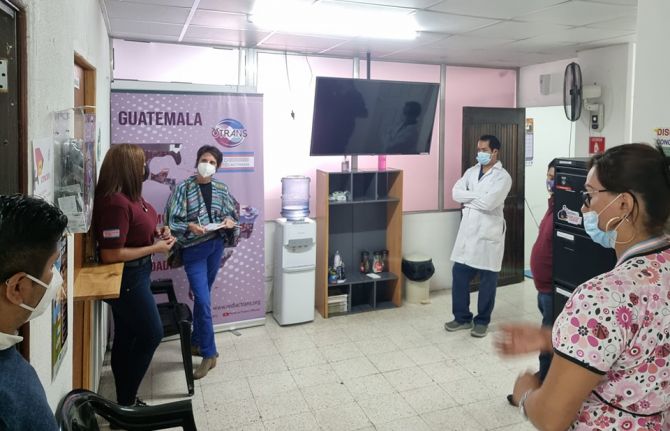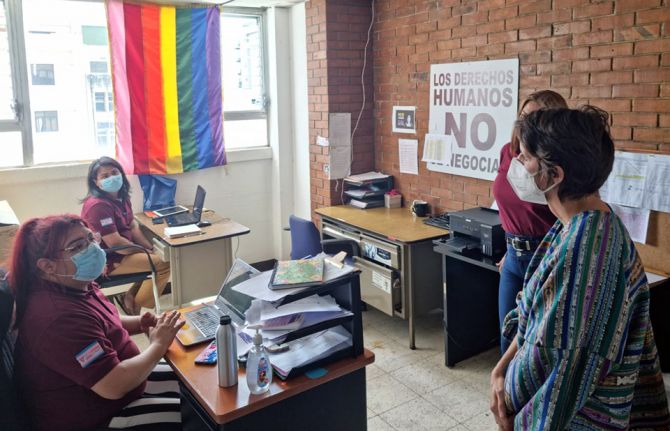



Feature Story
A beacon of hope in Guatemala
15 July 2022
15 July 2022 15 July 2022It was a proud day for Stacy Velasquez the Executive Director of OTRANS Reinas de la Noche in June as she opened the doors to the community clinic that had just been officially approved as a health post by the Ministry of Public Health and Social Assistance. This meant that a full-time doctor was now in position.
Around 40 transgender women and sex workers have come to the clinic since the doctor's arrival. The clinic has existed for several years, but with the approval by the Ministry of Health and financial support from the Global Fund and OXFAM, patients now have access to comprehensive care: HIV prevention and diagnosis; prevention, diagnosis and treatment of sexually transmitted infections; psychosocial counselling; medical consultations including hormone therapy; a laboratory service for sexual health testing and a pharmacy.
The clinic offers pre-exposure prophylaxis (PrEP), a biomedical intervention within the combination prevention approach, which refers to the use of antiretroviral drugs by HIV-negative individuals to reduce the risk of contracting the virus.
"In 2016, a comprehensive health strategy for trans people was approved with technical support from UNAIDS. It includes a manual of guidelines for the health care of trans people,” said Stacy. “The community clinic and this strategy are the fruit of the work of almost 18 years of advocacy by the trans community."
OTRANS contributes to the Centro de Documentación y Situación Trans de América Latina y el Caribe (CEDOSTALC), a community-based system for collecting information, monitoring and responding to human rights-related barriers faced by the transgender population in 26 countries in Latin American and the Caribbean.
In Guatemala, transgender women still face exclusion, discrimination, stigma, verbal and physical violence, criminalization, marginalization and a lack of recognition of their rights, resulting in a life expectancy of only 35 to 40 years old. The average life expectancy in the country is 74 years old.
During a visit to the clinic, UNAIDS country director, Marie Engel praised the work of the site and paid tribute to Andrea Gonzalez, the OTRANS legal representative who was murdered in 2021.
“In Guatemala, the HIV prevalence rate is 22.2% among the transgender population, compared to 0.2% for the general population,” said Ms Engel. “And although new HIV infections declined by 23% among all women between 2010 and 2019 globally, they have not declined among transgender women. And yet, transgender people have less access to HIV services than the rest of the population.”
Stigma and discrimination have a profound negative effect on the mental health of transgender people, which in turn can influence their vulnerability to HIV infection. Data reported to UNAIDS in recent years show that the percentage of transgender people who avoid seeking HIV testing due to stigma and discrimination ranges from 47% to 73%.



